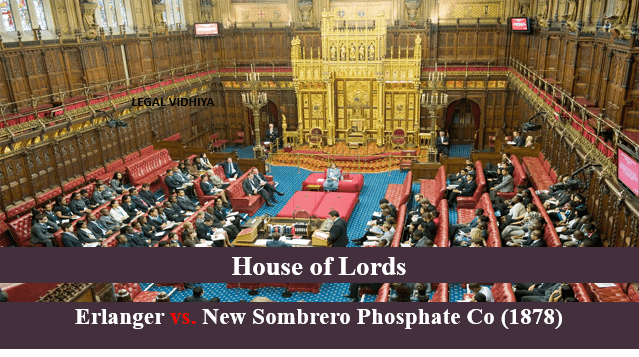
Facts of the case
In this instance, a group of individuals led by Erangler paid £55,000 for an island which was site to a phosphate mine. Following that, Phosphate Co (Phosphate) was established to manage the mines, and through a nominee, Sombrero’s lease was sold to Phosphate for £110,000. The Lord Mayor of London, who was not a member of Erlanger’s original group of founders, served as one of Phosphate’s directors. Two additional directors were abroad ; the additional directors were Erlanger puppet directors. The business was virtually an extension of Erlanger because of its tight control over Phosphate. The lease’s sale was approved by phosphate. Erlanger’s aptitude for promotion led to a large number of investments in Phosphate.
Phosphate sued Erlanger for recession owing to non-disclosure and an account of profits when the investors realised that he had sold the lease to them for twice what he had paid for it.
Issue
• Was Erlanger liable to Phosphate due to not disclosing to his conflict of interest?
Arguments and Rule:
The company argued that Erangler is a promoter of the company as per Section 2(69) of the Company Act as per which a promoter is someone,
• who has been named as such in a prospectus or is identified by the company in the annual return referred to in section 92;
• who has control over the affairs of the company, directly or indirectly whether as a shareholder, director or otherwise;
• in accordance with whose advice, directions or instructions the Board of Directors of the company is accustomed to act.
Judgement
The court held that Erlanger was a promoter of the company phosphate. The House of Lords unanimously decided that a promoter’s relationship with a freshly created firm qualifies as a fiduciary relationship. A promoter owes the company obligations of honesty and good faith. Erlanger can’t make any “secret profits” because he was required to disclose any competing interests to the corporation that promoted him. Promoters who fail to inform the firm of conflicting interests are in violation of any obligations they have to the business. The business has the option to pursue remedies including contract cancellation and profit recovery. Additionally, a constructive trust may be established for any gains the promoter received after failing to uphold their duties.
The majority also ruled that the contract cannot be terminated (Lord Cairns LC dissented).
Lord Blackburn
• Counter-restitution is justified by the requirement that the party seeking rescission not also benefit unfairly.
• The best course of action is to enable “practical justice” by using monetary counter-restitution for benefits that cannot be returned directly rather than insisting on precise specified counter-restitution.
Citation
(1878) 3 App Cas 1218
Written by Ridhima Mittal an intern under legal vidhiya.




0 Comments